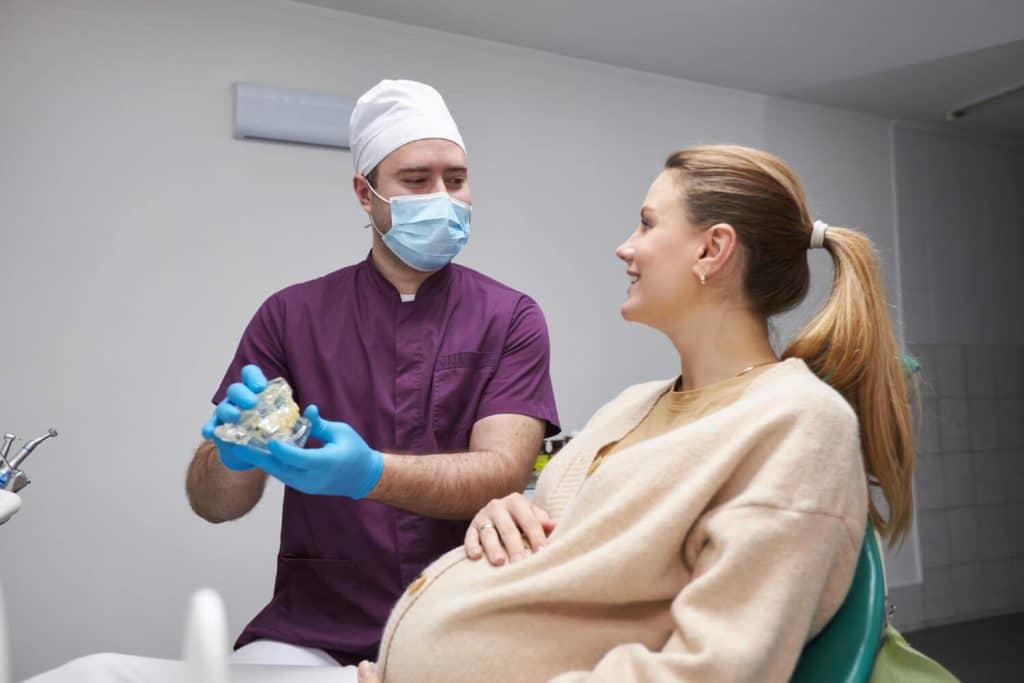Laser hair removal is a trendy process for casting unwanted hair, but for pregnant women, the element of safety has to be a top priority. Many expectant mothers remain uncertain whether it’s safe to experience laser hair removal during pregnancy. Here, we will figure out the possible risks and perks of laser hair removal while pregnant and supply you with the required information you need to make the right decision.
What is Laser Hair Removal is All About?
Laser hair removal is a cosmetic process. In laser hair removal, there is a use of concentrated beams of light that target and smash up hair follicles, decreasing hair growth. It is usually administered on different body areas, including the legs, bikini line, and face. Though it is generally considered safe for most individuals, the well-being of laser hair removal during pregnancy is a matter of apprehension!
Safety Concerns During Pregnancy
Pregnancy comes with considerable hormonal changes that can influence the skin’s sensitivity. The increase in hormones like estrogen and progesterone can make the skin more susceptible and prone to pigmentation changes. This increased sensitivity provokes safety concerns, notably during pregnancy.
Hormonal Changes and Skin Sensitivity
The hormonal changes that take place during pregnancy can lead to numerous skin-related concerns, making it significant to be careful about any cosmetic methods. These hormonal changes have an impact on the skin in the following ways:
Increased Sensitivity: Pregnancy hormones can enhance skin sensitivity. What might have been an acceptable feeling before pregnancy can be more discomforting or even aching during pregnancy.
Hyperpigmentation: Pregnant mothers mostly undergo heightened melanin production, which can contribute to hyperpigmentation. This means the skin will likely be more at risk of darkening or scarring after laser treatment.
Pain Management: Handling pain during laser hair removal is not easy for pregnant women due to restrictions on pain relief solutions.
Risks of Laser Hair Removal During Pregnancy
Laser hair removal carries certain risks when done during pregnancy, including:
Skin Damage: The increased reactivity of the skin can contribute to burns, blisters, or skin mottling. These unfavorable effects can be more evident during pregnancy.
Pigmentation Changes: As mentioned before, pregnant women are more inclined to experience pigmentation changes, which can be worsened by laser treatment.
Discomfort: The procedure can be more agonizing during pregnancy due to heightened skin sensitivity. Pregnant women may find the process more uncomfortable than they would have outside of pregnancy.
When to Avoid Laser Hair Removal During Pregnancy
To play it safe, evading laser hair removal during pregnancy is usually suggested. Here are a few scenarios in which you should avoid the procedure:
First Trimester: The first trimester of pregnancy demands great care as it is the period of fetal development. It’s better to keep such procedures at bay.
High-Risk Pregnancy: If you have a complicated pregnancy or health-related complications, it is strongly suggested to have a word with your healthcare provider before opting for any cosmetic procedures. Your healthcare provider can deliver precise guidance based on your circumstances.
Sensitive Skin or Skin Conditions: If your skin is prone to skin concerns or a history of skin issues, the potential associated with laser hair removal during pregnancy may overshadow the advantages. In such cases, it’s better to go for other hair removal procedures that are safer.
Alternatives to Laser Hair Removal During Pregnancy
If you’re looking for safer hair removal processes during pregnancy, there are a few alternatives on which you can rely:
Shaving: Shaving is a handy and easy way to remove hair. Just be extra careful using a fine-quality razor to avoid cuts or nuisance.
Waxing: Waxing can successfully eliminate hair for extended periods, but it can be a little more aching than usual during pregnancy due to increased sensitivity. If you go for waxing, it’s essential to have it done by a professional who grasps pregnant women’s particular needs.
Depilatory Creams: Hair removal creams can be an effortless option, but it’s crucial to select a product that is harmless for pregnancy and execute a patch test to ensure you don’t have an unfavorable reaction.
Electrolysis: Electrolysis, a technique that uses electric currents to remove hair, is usually considered not dangerous during pregnancy. It may involve several sessions for desired results. Consult with a specialized electrologist who understands working with pregnant clients.
Consultation with a Healthcare Provider
Before jumping to any decisions about laser hair removal or other hair removal techniques during pregnancy, seeking advice from your healthcare provider is essential. They can supply tailored advice depending on your precise medical history and circumstances.
Pregnancy comes with immense hormonal changes that can affect skin sensitivity and pigmentation, making it imperative to prioritize protection. There are safer alternatives accessible for short-term hair removal during pregnancy, like shaving, waxing, depilatory creams, and electrolysis.








